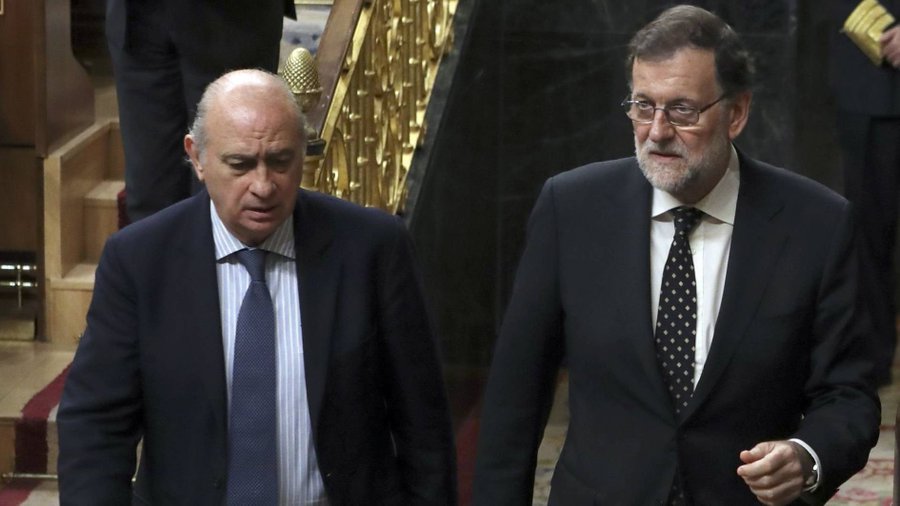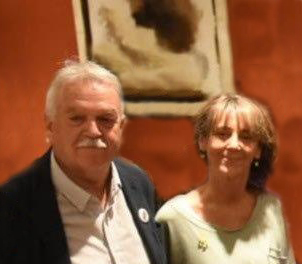Not only does the EU have no regard for the lives of refugees dying in the Mediterranean, its Eastern border, and the English Channel, but appears to have no regard to the rule of law either, which has become so glaringly evident in Spain. Thus it is no surprise that a non-EU state has been the first to take positive legal action against Spain’s lawfare.
Toni Strubell is a former MP in the Catalan Parliament, journalist, and author of What Catalans Want
Núria Bassa Camps is a Catalan writer and photographer
Acknowledgement: Thanks for Michael Strubell’s proofreading.
Article publicat en catalan aquí

Four years have passed since Catalonia’s independence Referendum and the onset of a sombre period in which it became clear that repression and lawfare would be the Spanish government’s only answer to the Catalan issue. Since then, and despite Spain’s “socialists” coming to power, the conflict has become a largely judicial affair conducted in two distinct judicial scenarios: the courts of Spain, and those of Europe. In Spain, about 4000 Catalans have so far been tried or investigated, largely on charges of rebellion, sedition and disobedience, with hefty convictions against leaders and activists involved in protests that are considered lawful in democratic states less tarnished than Spain’s. In Europe, though, Spain’s judicial offensive has met with quite another outcome, with regular refusals of extradition demands –some final, some provisional– in countries such as Belgium, Scotland, Germany, Switzerland and Italy. Indeed, Belgium has even gone so far as to change its own legislation, prompted by Spain’s request for the extradition of popular rap star Valtònyc (Josep Miquel Arenas) for a song insulting the monarchy.
But it is Andorra, of all places, where Spain’s unabashed abuse of lawfare is now facing its most important international challenge. In this case, it is not a mere question of the rejections for extradition requests that have repeatedly rattled Spain since 2019 but the investigation and probable prosecution of high-ranking officials accused of committing serious crimes on Andorran soil. One may venture that if it had “only” been a question of giving false evidence to frame Catalan independentist politicians, Andorra might well have followed EU suit and turned a blind eye. But the fact is that Spain’s abuse of lawfare has actually led to serious consequences for Andorra’s rather peculiar banking system.
Two ingredients make this case particularly significant. Firstly, that Spain’s use of false evidence to frame political opponents actually led to the traumatic closure of an Andorran bank, Banca Privada d’Andorra (BPA). And secondly, that former PM Mariano Rajoy might well be affected by the case if evidence and statements so far presented before the Andorran courts are finally confirmed. What the case has certainly proved is that while the Spanish government’s abuse of lawfare was unbridled within Spain, its overspill into Andorra would not go unchallenged, however much that small Pyrenean principality may have assumed its traditional role as Spain’s back yard bully victim. Some even see the case as the first major threat to Rajoy’s legendary impunity since until now he had always managed to shirk his party’s, Partido Popular, responsibility for the interminable cases of corruption and disregard for international agreements. If the first steps towards his possible questioning and possible indictment are indeed confirmed, we could be faced with the first international conviction of a former European PM for a case of lawfare? Whatever the outcome, the case is sure to mean no little embarrassment for Madrid.
The Banca Privada de Andorra (BPA) case
So far the trial over the forced closure of BPA -due to alleged irregularities and money laundering in 2015 – has had the virtue of unearthing the case’s inextricable link with Operación Cataluña (see below). On the basis of the evidence produced, there is little doubt that the bank collapsed when strings were illegally pulled in Madrid. At the trial, the bank’s former CEO, Joan Pau Miquel, openly spoke of his conversations with Spanish officials. He confirmed that the real reason for the bank’s traumatic closure had been the pressure exerted by Madrid in its obsession to obtain information about the leaders of the Catalan Independence Process. He assured the court that Martín Blas, the head of Spain’s National Police Internal Affairs department, had informed him that he was under the obligation to cooperate because they were “at war with Catalan nationalism”. He also revealed that the Spanish Embassy’s Home Affairs attaché, Celestino Barroso, had threatened him to the effect that he was either to cooperate with the Spanish government or “the bank will die”. Barroso also informed him that the American authorities had been told about the bank’s “irregularities”, the key factor behind its fraudulent suspension.
It was in 2020 that grievances were filed against President Rajoy by the Andorran Human Rights Institute and the lawyers’ association Drets. They accused him of having had documents forged and acting with “coercion” against Constitutional bodies. Former Interior minister Jorge Fernández Díaz (mastermind behind Operación Cataluña) too was also officially accused of threats, coercion, blackmail and extortion while other state officials were accused of coercion against the Principality’s authorities with a view to illicitly obtaining banking information on Catalan pro-independence clients (among whom, former president Pujol and his family, former president Artur Mas and former vice-President Oriol Junqueras) and for sending false information to the U.S. Treasury in order to force the intervention and closure of BPA for alleged money laundering. In the opinion of the bank’s manager, a political strategy was deployed “based on false information fabricated by Rajoy’s Executive so that the Government of Andorra could take concrete and irreversible decisions that have been detrimental to the country’s banking image and international credibility”. The most interesting event to date is that the accusations made against Rajoy have been admitted by the Andorran judge. Indeed, the first legal steps have been taken with a view to a possible trial. Former Spanish ministers Mariano Rajoy, Cristóbal Montoro and Jorge Fernández Díaz will presumibly be summoned for questioning, in line with international legislation.
The petition is based on the fact that there is new incriminating evidence to support their accusations. Among new evidence presented, there is a report from the Spanish Public Prosecutor’s Office and a resolution of the National Court (Audiencia Nacional) dated October 2021, which confirm that the notes of José Manuel Villarejo (a former National Police officer) on the Andorran plot, “were official police documents”. These intelligence notes, which are included in the case and were acknowledged and ratified by ex-police officer Villarejo, are one of the new incriminating elements in the case against Mariano Rajoy and the leaders of a police force that Rajoy openly referred to at the time as his “Patriotic Police”, a revealing definition for a corps that lawyer and political scientist Damià del Clot sees as a clear spin-off of the old Francoist Police model.
So, what was “Operación Cataluña”?
Though Spain’s authorities have made every effort to have Operación Cataluña swept under the carpet, the Andorran case has brought it centre stage once again. For “Operación Cataluña” was the name given to the Interior Ministry’s 2010 plan to stall Catalan independence by uncovering or cooking up cases of “corruption” affecting key Catalan politicians with the aid of the Spanish National Police. At the 2012 elections, Rajoy’s party (PP) leaked false information to the Madrid newspaper El Mundo which published apocryphal UDEF “reports” on false accounts of former presidents Mas and Jordi Pujol in Switzerland and Liechtenstein. The strategy was repeated in 2014, a few days before the unauthorized 9 November Referendum on the political future of Catalonia. Again, the newspaper El Mundo published a report that claimed that the then Mayor of Barcelona, Xavier Trias, had an account in Switzerland, a ploy that possibly caused him to lose the elections. And later, in an attempt to refute Trias’ denial, El Mundo even published on its front page the number of the false account with the Union of Swiss Banks (UBS). Days later, the bank certified that the account did not exist and that the number was not even of the kind used by the bank. Later on newspaper Público newspaper uncovered the conspiracies of former Minister of the Interior, Jorge Fernández Díaz, in a conversation recorded with the former director of the Anti-Fraud Office of Catalonia (OAC), Daniel de Alfonso, in which their sinister machinations were revealed as regards the way of “chatting up” public prosecutors in order to get them to cook up false accusations designed to eliminate political opponents. At present, though, no Spanish court has seen fit to take effective legal action on this issue. Indeed, little Andorra –and not the state-friendly EU- is the only scenario to date where Spain’s perfunctory use of lawfare has been put into the hands of the judges.



Be the first to comment